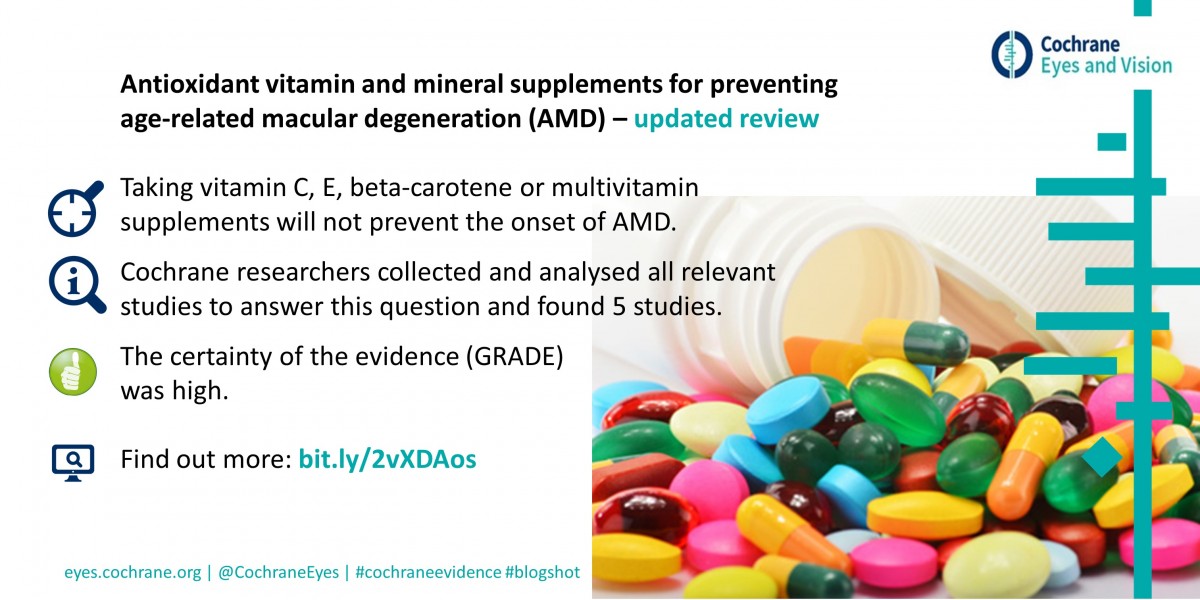
Latest evidence published in the Cochrane Library suggests that taking vitamin supplements, such as vitamin E or beta-carotene, may not prevent the common eye disease age-related macular degeneration (AMD).
See additional resources at the bottom of this page
Age-related macular degeneration (AMD) is a progressive and sight-threatening disease affecting the central area of the retina and affects large numbers of people across the world. Population-based studies suggest that in older people (80 years and older), approximately one in three people have early signs of the disease.
There are numerous unanswered questions in the prevention of AMD. There has been a growing perception amongst eyecare professionals that taking vitamin supplements - in particular, antioxidant supplements such as lutein and zeaxanthin - may protect patients against the onset of the eye disease.
A team of Cochrane researchers conducted a study to assess whether taking antioxidant vitamin and mineral supplements prevents the development of AMD.
They collected and analysed data from five studies involving men and women from Australia, USA, and Finland.
Lead author Jenny Evans from the London School of Hygiene & Tropical Medicine explains more:
How important was it to update this Cochrane Review?
This is a topic that is currently of much interest to people in the general population. The review was last updated in 2012 and we knew that there were new studies available.
What did you find?
We found five large studies that compared taking vitamin E, beta-carotene, vitamin C, and multivitamin with taking a placebo in people in the general population.
People taking these supplements had a similar chance of developing AMD compared with people not taking the supplements. We did not find any relevant studies of lutein and zeaxanthin in the general population.
What does this mean?
If you are healthy, with a healthy diet, and you do not have problems with your eyes, then taking vitamin supplements is not necessary.
How robust is this evidence?
The evidence is robust. The studies were large (more than 75,000 people) and were well conducted. There is an evidence gap for whether or not to take lutein or zeaxanthin to prevent AMD.
What would your message be to eyecare practitioners?
Be aware that there is no evidence that antioxidant supplements prevent AMD.
What would your message be to patients already taking vitamin supplements to prevent AMD?
The decision as to whether or not to take vitamin supplements is up to you. Vitamin supplements are generally regarded as safe. You may wish to discuss these again at your next visit to your eyecare practitioner.
What does this mean for patients who think they are at higher risk of contracting the disease?
The decision as to whether or not to take these supplements is up to you. If you choose not to take them, you are unlikely to be putting yourself at greater risk of developing AMD.
What further research would you like to see, and what would this tell us?
It would be good to have a large trial comparing lutein and zeaxanthin with taking no supplement in people who have not yet developed AMD. The aim would be to see whether taking supplements reduces the chance of developing this condition.

- This review has been published alongside a companion AMD review - read both reviews in full here
- Read more about whether taking vitamin supplements slows down progression of AMD
- Visit the Cochrane Eyes and Vision website
